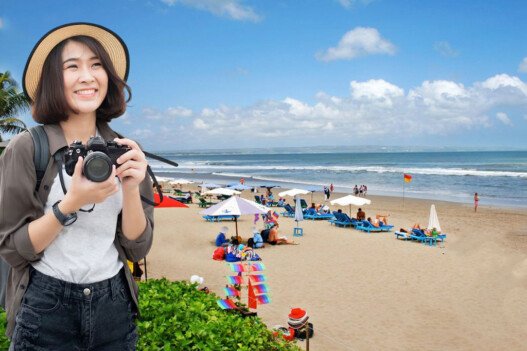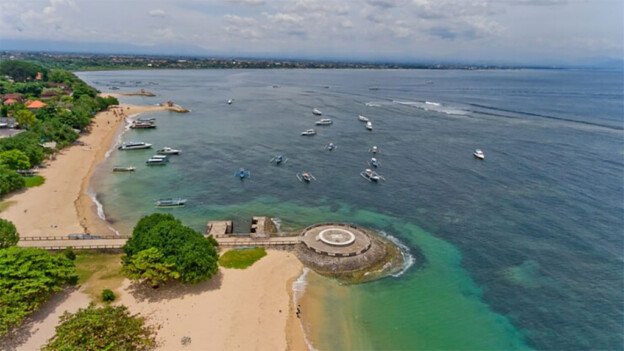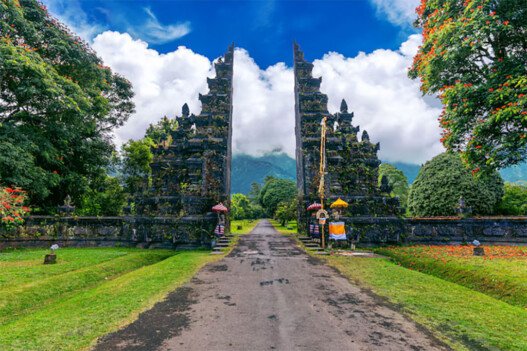Bali is renowned for its stunning landscapes, rich culture, and warm-hearted people. As tourism continues to thrive, it’s essential to ensure that the benefits of this influx reach the local communities. Supporting these communities not only enriches your travel experience but also contributes to the sustainable development of the island.
Here’s a comprehensive guide on how to make a positive impact while enjoying all that Bali has to offer.
🏨 1. Choose Locally-Owned Accommodations
Opting to stay in locally-owned accommodations ensures that your money directly benefits the Balinese community. Family-run guesthouses, boutique hotels, and homestays often provide more personalized experiences and contribute to local employment.
Tips:
- Look for accommodations that support community initiatives.
- Engage with hosts to learn about local customs and traditions.
🍽️ 2. Dine at Local Warungs and Restaurants
Bali’s culinary scene is diverse and vibrant. By dining at local warungs (small family-owned eateries), you support local farmers and preserve traditional cooking methods.
Tips:
- Explore lesser-known areas to find authentic dining spots.
- Ask about the origins of dishes to learn more about Balinese cuisine.
🛍️ 3. Shop for Local Handicrafts and Souvenirs
Bali is home to skilled artisans producing unique handicrafts. Purchasing directly from them ensures fair compensation and helps preserve traditional crafts.
Tips:
- Visit markets like Ubud Art Market or villages like Celuk for silver jewelry and Mas for wood carvings.
- Avoid mass-produced souvenirs that don’t reflect Balinese culture.
🎨 4. Participate in Local Workshops and Classes
Engaging in workshops allows you to learn traditional crafts and skills while supporting local artisans.
Examples:
- Batik-making workshops in Ubud.
- Balinese cooking classes in various regions.
- Traditional dance lessons to understand cultural expressions.
🤝 5. Volunteer with Local Organizations
Many NGOs in Bali focus on education, environmental conservation, and community development. Volunteering your time or skills can make a significant difference.
Notable Organizations:
- Bali Children’s Project: Focuses on education for underprivileged children.
- Bumi Sehat: Provides maternal and child healthcare services.
- Bye Bye Plastic Bags: Works towards reducing plastic waste on the island.
🌿 6. Support Community-Based Tourism Initiatives
Community-Based Tourism (CBT) offers authentic experiences that benefit local communities. Participating in CBT allows you to immerse yourself in Balinese culture while ensuring that the community receives fair compensation.
Examples:
- Jatiluwih Village: Offers tours of UNESCO-listed rice terraces.
- Penglipuran Village: Provides insights into traditional Balinese village life.
🚲 7. Choose Eco-Friendly and Ethical Tours
Opt for tours that prioritize sustainability and ethical practices. Many operators in Bali offer eco-friendly adventures, such as cycling tours, hiking, or snorkeling with a focus on conservation.
Tips:
- Look for certifications like Travelife or Green Globe.
- Inquire about the operator’s environmental and community initiatives.
💰 8. Donate to Local Charities and Initiatives
If you’re unable to volunteer, consider making a donation to local charities and initiatives. Even a small contribution can have a lasting impact.
Suggestions:
- Research and donate to trusted local organizations.
- Attend fundraising events or charity bazaars to show support.
🗣️ 9. Respect Local Culture and Traditions
Understanding and respecting Balinese customs fosters positive relationships and enhances your travel experience.
Guidelines:
- Dress modestly when visiting temples and sacred sites.
- Ask for permission before taking photos, especially during ceremonies.
- Learn basic Balinese or Indonesian phrases to communicate with locals.
🌱 10. Minimize Your Environmental Footprint
Bali faces environmental challenges, including plastic pollution and habitat degradation. As a responsible traveler, it’s crucial to minimize your impact.
Actions:
- Carry reusable water bottles and bags.
- Participate in beach clean-ups organized by local communities.
- Choose sustainable transportation options like bicycles or electric scooters.
🌾 11. Support Sustainable Agriculture
Bali’s agriculture is integral to its culture and economy. Supporting sustainable farming practices helps preserve the environment and ensures fair wages for farmers.
Ways to Support:
- Purchase organic produce from local markets.
- Participate in farm tours to learn about sustainable farming methods.
- Support initiatives that promote agro-tourism and environmental education.
🏘️ 12. Stay in Eco-Friendly Accommodations
Many accommodations in Bali are adopting sustainable practices, such as using renewable energy, conserving water, and minimizing waste.
Benefits:
- Reduces your carbon footprint.
- Supports businesses committed to environmental conservation.
- Provides an opportunity to learn about sustainable living practices.
📚 13. Educate Yourself and Fellow Travelers
Knowledge is power. Educating yourself about Bali’s culture, history, and environmental issues enables you to make informed decisions and share valuable insights with others.
Resources:
- Read books and articles about Bali’s history and culture.
- Attend cultural workshops and seminars.
- Share your experiences and knowledge with fellow travelers to promote responsible tourism.
🏞️ 14. Explore Off-the-Beaten-Path Destinations
While popular tourist spots have their charm, exploring lesser-known areas allows you to experience authentic Balinese life and contribute to local economies.
Suggestions:
- Visit rural villages and engage with local communities.
- Support small businesses in less touristy areas.
- Respect local customs and traditions to foster positive interactions.
🧘 15. Engage in Wellness and Spiritual Practices Responsibly
Bali is renowned for its wellness and spiritual offerings. Participating in these practices can be enriching, but it’s essential to approach them with respect and mindfulness.
Tips:
- Choose wellness centers that are locally owned and operated.
- Inquire about the center’s community involvement and sustainability practices.
- Approach spiritual practices with an open heart and a respectful attitude.
🌐 16. Use Technology to Support Local Communities
In today’s digital age, technology can be a powerful tool for supporting local communities.
Ways to Utilize Technology:
- Use apps that promote sustainable tourism and ethical businesses.
- Share positive experiences on social media to raise awareness.
- Support online platforms that connect travelers with local artisans and service providers.
🧳 17. Plan Your Trip During Off-Peak Seasons
Traveling during off-peak seasons helps distribute the economic benefits of tourism more evenly and reduces pressure on local resources.
Benefits:
- Less crowded attractions and accommodations.
- Opportunities to experience local life without the hustle and bustle.
- Potential for lower prices and special offers from local businesses.
🛡️ 18. Practice Responsible Wildlife Tourism
Bali is home to diverse wildlife, and it’s crucial to ensure that your interactions with animals are ethical and respectful.
Guidelines:
- Avoid attractions that exploit animals for entertainment.
- Support wildlife sanctuaries that focus on conservation and rehabilitation.
- Educate others about the importance of ethical wildlife tourism.
🧭 19. Support Local Artists and Performers
Bali’s arts scene is vibrant and diverse. Supporting local artists and performers helps preserve cultural traditions and provides them with a platform to showcase their talents.
Ways to Support:
- Attend traditional dance and music performances.
- Purchase artwork directly from artists or galleries.
- Participate in art workshops to learn about traditional crafts.
🏅 20. Advocate for Sustainable Tourism Practices
As a traveler, you have the power to influence tourism practices by advocating for sustainability and ethical standards.
Actions:
- Choose tour operators and accommodations that prioritize sustainability.
- Encourage fellow travelers to adopt responsible tourism practices.
- Support policies and initiatives that promote sustainable tourism development.
Traveling to Bali offers a unique opportunity to immerse yourself in its rich culture and contribute positively to its communities. By making conscious choices and supporting local initiatives, you can ensure that your visit leaves a lasting, beneficial impact. Remember, responsible tourism is not just about minimizing harm but actively making a positive difference.









